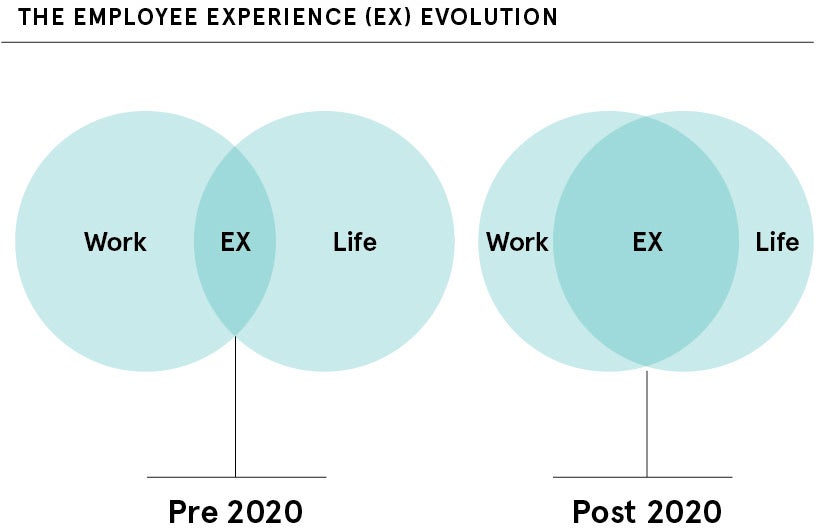
While the social challenges of 2020 compounded by the coronavirus pandemic have highlighted the joint responsibility both parties have for employee welfare, research carried out by employee experience platform Perkbox reveals the true extent of the mismatch between leaders and their staff.
More than a third (36 per cent) of employees felt less connected to their colleagues and 32 per cent felt lonelier than ever before, yet only 20 per cent of bosses saw maintaining emotional wellbeing as a significant challenge to be addressed, compared with 45 per cent of employees.
As organisations emerge into a new working world, where the lines between work and life have blurred, they must find new ways of connecting with employees, and which ultimately improve their wellbeing and the success of the business.
Perkbox’s Head of People Mona Akiki explains: “To succeed, a business needs employees who perform at their best and for this to happen employees need to be mentally and physically healthy. The new working world has meant some organisations are no longer in the office and as a result managers are no longer able to notice warning signals. Ironically, this also holds true for essential workers who may be physically present, but whose sole purpose is to maintain the wellbeing of others.”
Many are predicting the events of 2020 will bring about a permanent new norm for businesses. Employers should, therefore, be focused on providing a positive employee experience, which in itself has evolved during the crisis. Previously focused on perks within the physical office space, employee experience is now being reset to create a more meaningful and lasting emotional connection between employer
and employee.

Perkbox’s research found 60 per cent of business leaders recognise the emotional wellbeing of their employees has suffered more since COVID-19 and, while 36 per cent now plan to invest more in wellbeing initiatives, 24 per cent clearly see the problem, but have no plans to invest in improving it.
“Employers need to be more creative and build various types of support systems,” says Akiki. “Apps like Zoom help staff feel less lonely and more connected, but that isn’t enough. If employees are to perform at their best, they need to know where to turn when things get tough, as well as how to celebrate wins. It’s as simple as creating communities within the organisation and making it easy for employees to reach out.”
Stronger connections are also needed to encourage better, more regular interactions between employees and managers to surface any concerns before they become obstacles. The COVID crisis has made people re-examine priorities and that includes feeling valued at work. People are still willing to work hard, but they want to do it for an organisation that cares about them as an individual and values their contribution to business goals.
“Wellbeing is no longer just a perk, but an expectation, in life and at work. Without it, people will ultimately burn out and leave,” says Akiki. “Employers that factor wellbeing and employee experience into how they do business will have a more driven, productive, healthy and happy workforce.”
Learn how Perkbox helps companies improve their employees’ experience at perkbox.com
Perkbox’s top tips
Organisations
Employee experience should become one of the main business priorities for all organisations, as it is integral to achieving business goals. There should be strategies that also focus on making people feel healthy, happy and engaged,
in life and at work.
Managers
Now more than ever, managers need to build better relationships and a stronger sense of connection with their employees based on regular, recurring discussions to reinforce a positive employee experience and, crucially, be ready to spot signals when things aren’t going well.
Employees
Creating relationships and reaching out to others is good for colleagues and beneficial for the individual. Loneliness isn’t necessarily physical. You can be busy in your job and still feel isolated and lonely, so nurture those relationships. Notice the individuals who fill you with hope and positivity, and surround yourself with them.
Promoted by Perkbox

While the social challenges of 2020 compounded by the coronavirus pandemic have highlighted the joint responsibility both parties have for employee welfare, research carried out by employee experience platform Perkbox reveals the true extent of the mismatch between leaders and their staff.
More than a third (36 per cent) of employees felt less connected to their colleagues and 32 per cent felt lonelier than ever before, yet only 20 per cent of bosses saw maintaining emotional wellbeing as a significant challenge to be addressed, compared with 45 per cent of employees.
As organisations emerge into a new working world, where the lines between work and life have blurred, they must find new ways of connecting with employees, and which ultimately improve their wellbeing and the success of the business.

